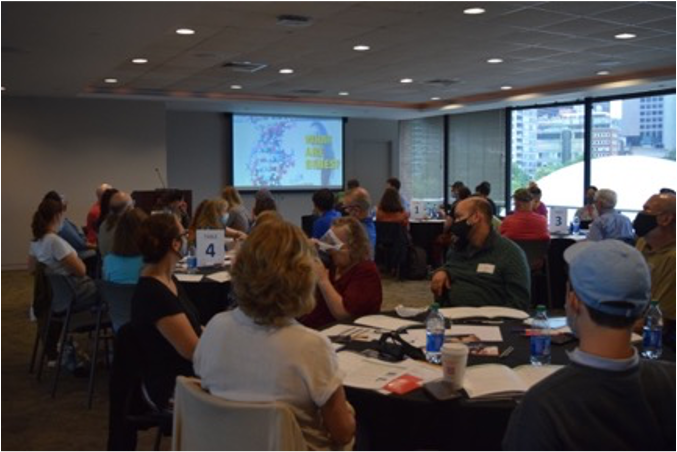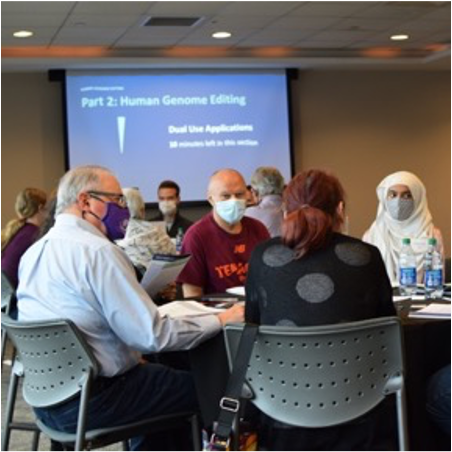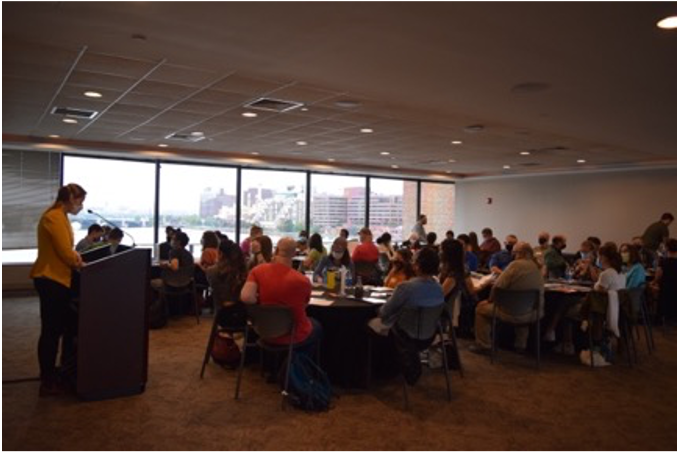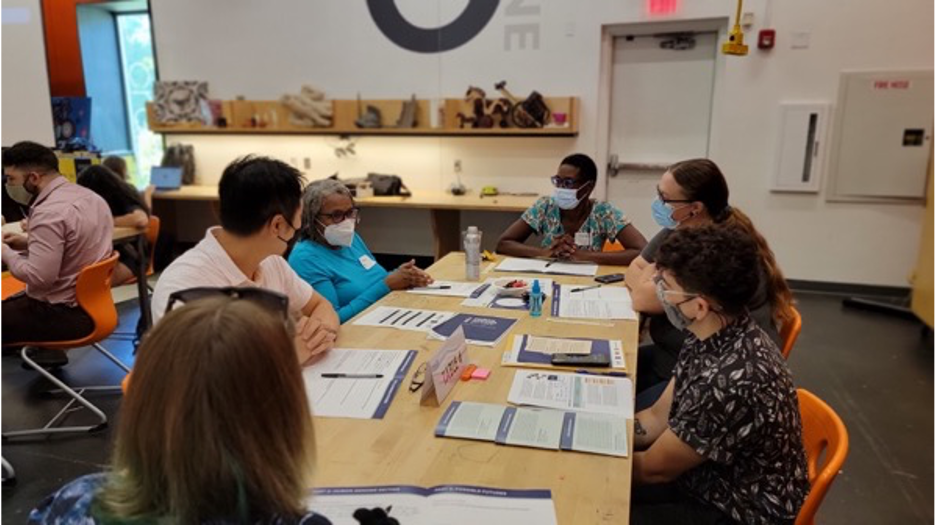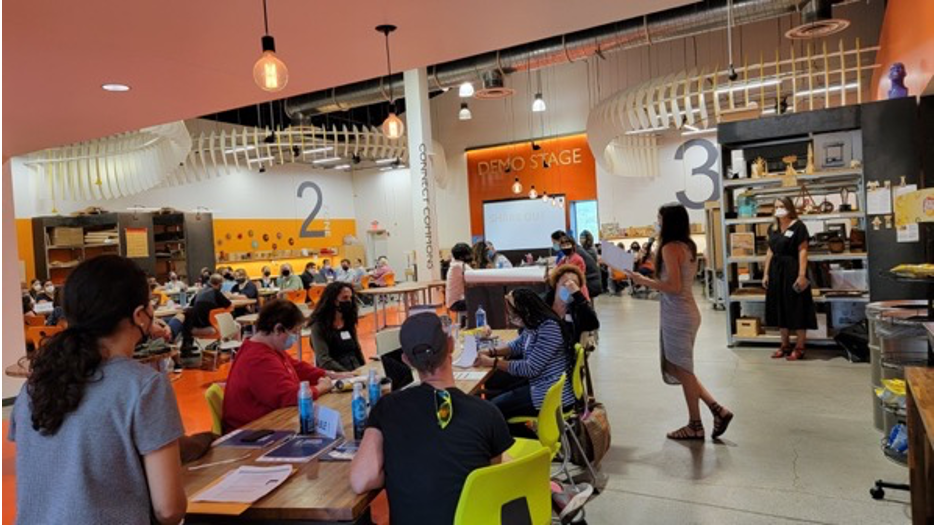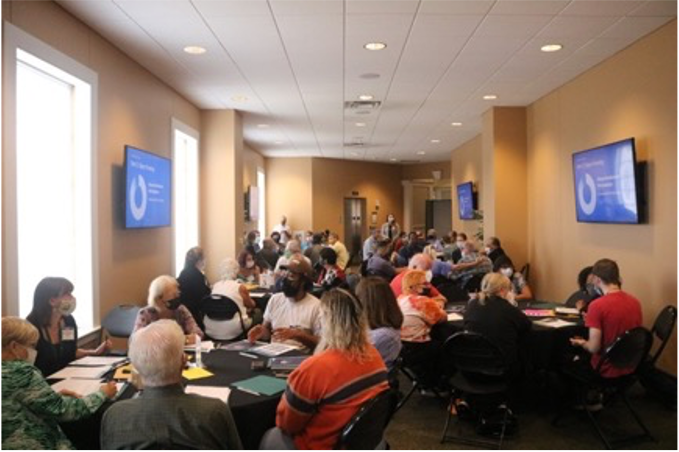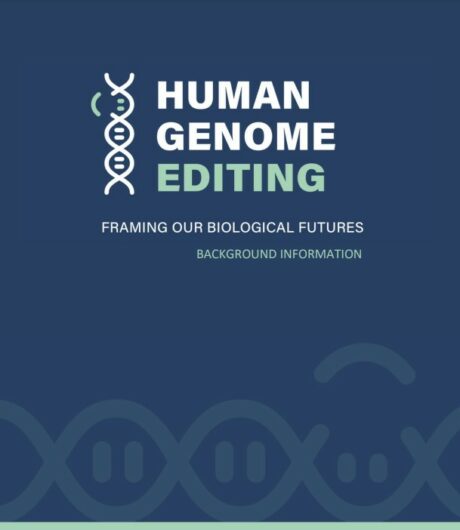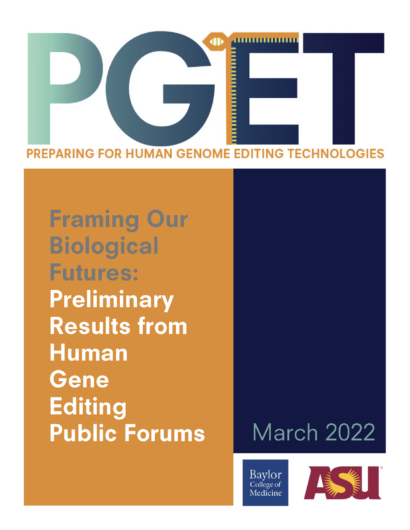Future-Focused Deliberations on Human Genome Editing
Program Areas – Responsible Innovation, Education and Engagement, Futures
Editing Our Genome? Public Forums on Framing Our Biological Futures
The incredible potential and rapid advancement of gene editing techniques, particularly the invention of the CRISPR/Cas9 system, have raised significant ethical, legal, and social questions that cannot be answered by expert stakeholders alone. Baylor College of Medicine, Arizona State University, and the Museum of Science Boston (MOS), supported by the National Institutes of Health, worked with citizens and expert stakeholders to understand the driving forces behind human genome editing (HGE) research. The team developed a series of public deliberations around the ethics and governance of genome editing, and plan to use those results to inform policy.
Using a reflexive public engagement method known as participatory technology assessment (pTA), three in-person forums in Boston, MA; Phoenix, AZ; and Waco, TX and one virtual forum with informed and demographically diverse participants across the United States were conducted to understand public concerns, values, and issues, and develop actionable understandings of public preferences regarding governance of HGE research, development and applications. The learning and engagement materials for these forums were created through literature review, expert interviews, expert workshops, and open-framed focus groups.
In total, 150 people participated across the four forums. The participants were majority female (54%) and white (58%) between the ages 25-44 (34%). In terms of self-identified political ideology, participants were primarily liberal (45%) or moderate (30%), and most considered faith important (31%) or very important (23%).

